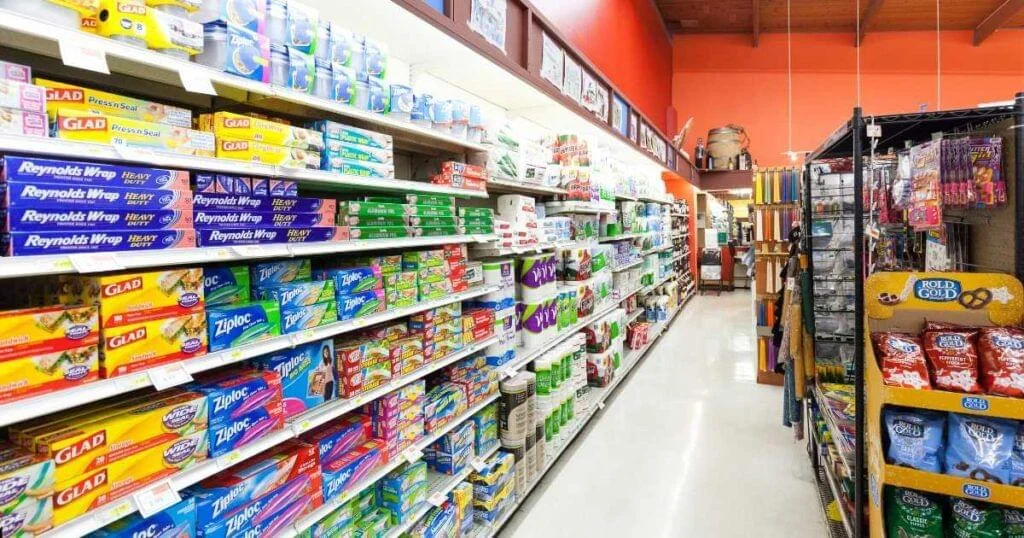Dumpster diving is a practice where individuals or groups look through discarded items in search of usable goods, typically for essentials like food, clothing, and sometimes even household items. People engage in dumpster diving for various reasons, ranging from economic necessity to a desire to reduce waste and promote sustainability.
By reusing what others discard, dumpster divers aim to minimize waste, conserve resources, and extend the life of items that would otherwise contribute to landfills. The core principles behind dumpster diving are captured in the 3 Rs: reuse, reduce, and recycle.
Reuse involves finding new value in items that others have deemed useless, reducing waste by preventing still-valuable resources from going to waste, and recycling in the broader sense of giving products a second life. These actions not only help reduce environmental pollution but also promote a more mindful approach to consumption and waste management.
This guide delves into the numerous advantages of dumpster diving, emphasizing its potential to benefit the environment, minimize waste, and shed light on societal consumption habits. Whether driven by environmental concerns or necessity, dumpster diving encourages sustainable living while fostering a community spirit centered on resourcefulness and conservation.
What is Dumpster Diving?
Dumpster diving is a practice that many people resort to, particularly when resources are limited and meeting basic needs becomes difficult. Typically done near large stores and supermarkets, it provides individuals with the opportunity to recover items in usable condition, ranging from food to clothing and beyond.
For those facing financial difficulties, dumpster diving can provide access to essentials without the need to buy new or pay full retail prices. This practice is named for the act of sifting through bins or dumpsters, but for those who rely on it, it’s a valuable resource that helps them meet their daily needs affordably.
Why is Dumpster Diving Good for the Environment?
Though some may view dumpster diving with skepticism, it actually carries meaningful environmental benefits. By recovering and reusing items, dumpster diving contributes to reducing waste, which is key to protecting our environment. Below are some ways it benefits the planet.

Lowering Waste Levels
One of the most significant environmental benefits of dumpster diving is its ability to lower waste. When people salvage items, they reduce the quantity of waste heading to landfills. This practice helps cut down on land pollution and prevents harmful materials, like plastic, from entering the ecosystem. Similarly, dumpster rentals play a crucial role in facilitating proper recycling and waste management for businesses and households.
Cleaner Air and Healthier Spaces
Dumpster diving plays a part in keeping our environment cleaner by reducing waste, which leads to improved air quality. As waste decreases, spaces become more appealing and inviting for everyone, enhancing the overall vibe of neighborhoods. By taking part in dumpster diving, you’re not only helping create a cleaner planet but also contributing to a friendlier and healthier community atmosphere.
Fighting Hunger
Poverty and hunger are global issues that lead to malnutrition and health challenges, especially for children. Dumpster diving offers a way to help alleviate these issues. Many grocery stores and retailers discard surplus products that are still safe to eat, which can then be gathered by those in need. Additionally, people may find items they can sell, creating a small income stream.
Dumpster diving is a practical way to tackle hunger and poverty on a local level by rescuing food and other goods that would otherwise go to waste. It’s not just about finding free stuff – it’s a movement that encourages sustainability, cuts down on waste, and helps those who are struggling. By diverting perfectly good items from landfills, it’s a small but meaningful way to support people in need and take care of the planet at the same time. On a larger scale, waste management solutions can help redistribute resources and reduce unnecessary waste.
Best Places to Dumpster Dive
If you’re interested in dumpster diving, there are certain locations that tend to yield great finds and can help you make the most of the experience. These are some of the top places to begin:
Grocery Stores
Food waste is a major concern in many countries, particularly in the United States, where grocery stores often discard food just because of minor cosmetic flaws, approaching expiration dates, or damaged packaging. However, much of this food is still safe to consume and can be surprisingly fresh. Items typically thrown away include fresh produce, bread, canned goods, and even packaged snacks.
For people dealing with food insecurity or wanting to cut down on waste, grocery store dumpsters can be a great resource. Saving food from these dumpsters not only helps those in need, but it also plays a part in reducing the environmental harm caused by food waste, which releases harmful greenhouse gases as it rots in landfills.

Bakeries
Bakeries are another great source for edible goods. Most bakeries bake fresh daily, which means that any items that weren’t sold that day are often discarded, even though they’re still good to eat. By dumpster diving at a bakery, you might find bread, pastries, and other baked goods that are perfectly fresh.
Remodeling and Construction Sites
Construction and remodeling sites are prime locations for salvaging building materials like wood, bricks, tiles, and even paint. Contractors often discard perfectly usable materials, whether due to minor flaws or simply because they ordered more than needed.
For people working on home improvement projects, gathering materials from these sites can save a considerable amount on construction costs and reduce the environmental footprint associated with creating new supplies. As a bonus, many of these materials are durable and long-lasting, making them ideal for DIY projects or home repairs.
College Campuses and Dormitories
At the end of the school year, college campuses and dormitories are excellent places to find gently used furniture, electronics, clothing, and school supplies. As students clear out their rooms, they often discard items they don’t want to take home, which can include everything from small appliances like microwaves to books, clothing, and even electronics. Checking these areas during move-out seasons can yield a wide variety of items in great condition.
Electronics Stores
If you’re looking for electronics, old display models, or accessories, electronics store dumpsters are worth exploring. While stores typically don’t throw away functioning devices, you can often find cables, adapters, and sometimes even slightly damaged display models that can be repaired. With some technical knowledge, dumpster divers can repurpose or refurbish these items for personal use or even resale.
Furniture Stores
Furniture stores often discard items that have minor cosmetic damage, such as scratches or dents. In some cases, you may even find floor models or items that have been returned. These items are often still sturdy and functional, making them perfect for those looking to furnish a home on a budget. With a bit of DIY repair work, these discarded items can be transformed into quality pieces.
How Dumpster Diving Works?
Dumpster diving involves searching through discarded goods in places like dumpsters, trash cans, or refuse areas near stores to uncover items that, although thrown out, are still usable and valuable. Many stores discard items not because they’re unusable, but due to overstock, minor flaws, or the arrival of new inventory.
When dumpster diving, divers often practice respect for private property and leave the area as they found it. While some may view dumpster diving with skepticism, it’s a highly effective way to reduce waste and give items a second life. Skilled dumpster divers understand which locations are best for certain items, and they often develop a route, checking certain stores or sites regularly.
This practice isn’t only about finding useful items—it’s about sustainability, minimizing waste, and making a positive environmental impact. Although the practice can carry a social stigma, dumpster diving is growing in popularity among people committed to reducing waste, living more sustainably, and finding innovative ways to use discarded goods.
It’s a resourceful way to uncover hidden value, save money, and support environmental conservation. Whether you’re looking for essentials, unique finds, or just exploring new ways to support sustainability, dumpster diving can be a surprisingly rewarding pursuit.
Dumpster Diving Laws by State
Dumpster diving is generally a legal activity in the United States, offering people a way to find items discarded by businesses and individuals that still hold value.
In 1988, the Supreme Court issued a ruling in the case of California v. Greenwood that items placed in public dumpsters are no longer private property, making them available to anyone without a search warrant. However, while the practice is legal across the U.S., local ordinances vary, and some cities or counties may have specific restrictions.
For example, certain areas may have “no trespassing” signs posted near dumpsters, and entering a restricted area could lead to a trespassing violation. Additionally, some municipalities regulate scavenging by prohibiting people from going through certain types of waste, especially hazardous or commercial waste.
It’s important to familiarize yourself with the local rules to ensure you’re following regulations, as penalties can include fines or warnings if rules are violated.
Frequently Asked Questions
What are the main benefits of dumpster diving?
Dumpster diving offers several practical benefits. Primarily, it helps reduce waste by rescuing items that would otherwise end up in landfills. For students and individuals on tight budgets, it’s a way to save money on essentials, from food to clothing and even small electronics.
Dumpster diving also promotes sustainable practices by extending the life cycle of products and helping to reduce the demand for new manufacturing. This can lead to a reduction in pollution and resource depletion, making it an environmentally friendly activity.
Why do people dumpster-dive for food?
Food waste is a significant issue, with grocery stores and restaurants frequently discarding edible food due to cosmetic imperfections or upcoming expiration dates. For those struggling with food expenses, dumpster diving provides an opportunity to access fresh produce, baked goods, and other items at no cost.
Many divers report that they are able to gather nutritious food from dumpsters, sometimes enough to last days or even weeks. By rescuing this food, dumpster divers contribute to a reduction in food waste while also securing a cost-effective way to eat.
Can dumpster diving be a way to earn money?
Absolutely. Dumpster diving can be profitable, especially for those who know what to look for. Many divers collect scrap metals—like aluminum, copper, and steel—that can be sold to scrapyards for a decent payout. Other common finds include gently used electronics, furniture, and household items that can be cleaned, repaired, and resold online or at flea markets. Some divers make a few hundred dollars monthly, while those experienced in metal recycling can even make thousands, depending on their finds and dedication.
Is starting a dumpster rental business profitable?
The dumpster rental business can indeed be lucrative. With a steady demand for waste disposal services from construction sites, events, and home renovations, this industry offers consistent business opportunities. Startup costs are relatively low compared to other ventures, as the main expenses are acquiring dumpsters, transportation, and disposal fees at waste facilities.
Conclusion
Dumpster diving and the dumpster rental industry both highlight the potential in items and services that are often overlooked. Whether driven by a need to save money, reduce waste, or create a sustainable side income, dumpster diving can make a positive impact on both people’s lives and the environment.
By rescuing usable goods from landfills, individuals contribute to waste reduction and make valuable finds, helping to build a lifestyle that is both resourceful and eco-friendly. In the same spirit, the dumpster rental business provides communities with necessary waste management services, keeping neighborhoods clean and supporting both residential and commercial projects.
By combining affordability, convenience, and a commitment to proper waste handling, this industry has become a profitable venture that’s adaptable to many markets.
Together, dumpster diving and the rental business reflect a shared goal of resourcefulness, showing how repurposing and mindful waste management can benefit society, the environment, and the economy.
